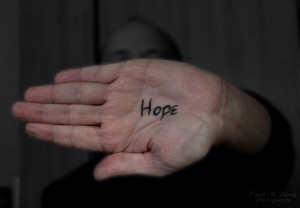Helping the Addicted Person
Part 3 of a 3-Part Series
 Throughout this series of articles, I have discussed the need to care for oneself when in relationship with someone who is battling with addiction. I have also briefly pointed out the roles that addicted family members play and how they can contribute to the disease of addiction. In this final article, I would like to focus on finding hope and healing in addiction.
Throughout this series of articles, I have discussed the need to care for oneself when in relationship with someone who is battling with addiction. I have also briefly pointed out the roles that addicted family members play and how they can contribute to the disease of addiction. In this final article, I would like to focus on finding hope and healing in addiction.
Addiction is a Disease that Requires Treatment
As a Christian counselor, my foremost belief is that healing begins with Jesus Christ. Without his grace and love, there is no hope for healing in any matter of life. His death and resurrection have made a way for us to find joy, peace, and contentment in our lives. Sin complicates things because we do not live in a perfect world, and as a result brokenness, disease, and dysfunction coincide in our lives and our relationships. Addiction is a disease of the brain and it therefore affects human beings in ways that are both similar and different to other diseases. When we, or someone we love, is afflicted with a disease, we often seek treatment from professionals in order to battle the disease. The same is true for addiction. Treatment is available and in order to battle the disease of addiction, one needs to seek and engage in treatment. Not only does the one fighting addiction need to seek treatment, but those who are in relationship with the addicted person must also seek treatment.
The Catalyst for Change
In my previous article, I identified the roles of addiction that are taken on by family members and close friends. Those roles contribute to and reinforce the addiction. Without treatment, the disease will grow stronger and become even more difficult to fight. Recognizing your own role in addiction is the first step in changing the dynamics of addiction. The goal is to get the whole family on board in this process of change in order to push the addicted person towards treatment. But even one person in the addictive family cycle can be a catalyst for change. Once you recognize your role, you can begin to change patterns and behaviors in order to force the person suffering with addiction to come to terms with the fact that they also need treatment. Of course, changing behaviors and patterns is always easier said than done.
Christian Counseling Can Help You Deal with Addiction
Christian counseling, particularly with a counselor who is certified to treat addiction, can offer the hope and healing you are seeking. As a Chemical Dependency Professional, I would be happy to work with you to identify your role in addiction, help you to change the patterns and behaviors in your own life, and hopefully help propel the addicted person in your life towards the same hope and healing. Understanding that being a part of the addictive cycle is not your fault is key to seeking treatment. Shame and guilt can often prevent people from seeking help, but please don’t allow the shame and guilt to win.
“HOPE,” courtesy of david pacey, Flickr CreativeCommons (CC BY 2.0); “Iris Iaevigata,” courtesy of Tanaka Juuyoh, Flickr CreativeCommons (CC BY 2.0)


